Hi friends,
Happy New Year! I hope you had restful holidays of shamelessly laying on the couch, being with family and friends, and, of course, binge-watching and binge-listening to everything that was stacked up in your queue.
Kind reminder that while you might feel pressure to ramp up work for 2025 and get things going on the exciting projects you have planned out, it’s okay to take your time. (This reminder is for myself first.) It’s still wintertime and, for many of us in Europe, that means cold—whether that equals 15 degrees in Spain or Portugal or negatives in the Balkans. This year will be full of amazing new creations, art, and connection. And it will hopefully also be full of gentleness and patience.
Before we get into today’s issue, I want to point your attention to this article on Malaysian podcasting and James Cridland’s article on how international data costs can impact podcasting. They both discuss accessibility in podcasting but from different landscape’s perspectives. It’s so important to keep the nuances of international podcasting in mind. There is a lot happening beyond the US and Europe too!
I’d love to hear your thoughts on this and what similarities you might find with your country’s podcasting space.
Consider this your reminder to send in pitches!
I’m happy to find out about new podcasts, production companies, marketing tools, events - anything podcasting. You can email me at <andreea.coscai@gmail.com>.
🎙️🗺️Europod’s Alexander Damiano Ricci on building international podcasting connections🗺️🎙️
Alexander Damiano Ricci is Founding member, Chief operating officer and Editorial director at Europod. He is one of the ideators of the WePod project, which he runs as production coordinator. Before pivoting to podcasts, he worked on developing the video-focused independent media network, Sphera, and, as a freelance written journalist reporter, for Italian and international media outlets.
What made you pivot from traditional journalism to podcasting?
I started to produce podcasts in 2018 after meeting Antoine Lheureux, founder and CEO of Europod (at the time, called Bulle Media). I must admit it all started rather casually, as a common friend, Simone Benazzo from the ULB put us in touch. I was coming from both media project development for a French non-profit as well as freelance reporting (mainly reportage stories) for Italian and international media organisations. I had also spent some good time doing data journalism for the European Data Journalism Network. So, for me, starting podcasts was more about exploring a new potential journalistic skill and income avenue as a European freelancer.
From there, it has been a rather extraordinary walk, as podcasting eventually took over completely my professional life. Together with Antoine, we brought Bulle Media from being literally a garage-project based on two people, to a small dynamic company providing working opportunities for a lot of other people across Europe. We found a few initial clients for whom we produced podcasts at a very competitive price, then we kicked-off a first major collaboration with an Italian media company - Jungle Europa podcast in 2019 for Repubblica - which I guess put us on the radar of other potential clients. The next step was being selected as a service provider by an institutional client within the Brussels EU bubble: the European Economic and Social Committee, for whom we produced the podcast series The Grassroots View. And from there it has been basically more of the same, with the crucial addition of leading European projects experimenting with multilingual products and co-productions.
What’s the most unexpected story you’ve helped bring to life through Europod co-productions?
Oh, I don't know whether our stories are unexpected, but I'd dare to say we had the chance to produce some original stories. In terms of co-production, probably #108 - The Fall of Press Freedom in Greece was the first major co-production. And I believe it was also about a topic little dealt with in mainstream news/podcast production. But on top of that, I should probably mention also the most recent co-productions which deal with some very distinctive topics and stories, such as Vie de routier-e-s (FR & ES, a podcast series on the life and economy of truck drivers in Europe, soon to be published also in English language) and Sea of Rage, which is a medley/adaptation of the original podcast series Mar de rabia & Mare di rabbia (ES, IT), co-produced by Podium Podcast and Chora Media (this one deals with the lives of ordinary people in the two places drugs hashish and cocaine enter into Europe). But really without wanting to brag here, there are many more which can be found on europod.eu.
What do you think makes a podcast uniquely European? Is it the topics, the voices, or something else entirely?
Oh, that's a tough one. The point is that, in general, so not only in podcasting, it's difficult to say what "uniquely European" means. Europe is a continent full of different languages and traditions. So, I guess, it is very difficult to say. It would be easier to say how a specific podcast is in line with trends in a specific European country, for instance. So, say how this or that sounds very "French" or "Spanish", etc. It's not a way of running away from the question, but ... really, I guess we are still trying to find out what European means more broadly, than for podcasting specifically.
Are there ways that European podcasters can build connections with international podcasting spaces (English-speaking and beyond)? What are your thoughts on that?
Well, this is linked somehow to the previous question and answer. So, I'd say this: as podcast series are, usually, very nation-specific in terms of cultural references and the likes, connecting with the international podcast scene means, to some extent, also simplifying the content of a podcasts series. What I am trying to say is that it's kind of difficult to write a narrative series (say, non-fiction), about something that happened in a given country (thus, region and city) in the same way for both a national and international audience. So, there are to ways to go: either trying to tackle a story, from the outset, in a way that it can make sense to a national and international audience (for instance, that's we tried to do with Vie de routier-e-s), or adapt a national content to an international audience, through a remake/adaptation (that's more what we tried to do with Sea of Rage). Now, that's all content-related of course. But then, I guess, there is the "issue" of being properly networked in the listening-platform universe (so Spotify, Apple Podcast, Pocket Casts, etc.) and the broader space of podcast-marketing influencers, which, again, is pretty US-based / driven. That's something European podcast production companies cannot overlook.
If you could tell pre-podcaster Alexander one piece of advice about navigating this industry, what would it be?
Mmm... I guess, the one piece of advice would be to follow a number - say 5 to 10 - newsletters about the podcast industry regularly, to keep track of the evolution of the podcast market and industry. Because producing content and distributing it does not happen in a void. Podcasting is a lot about networking and building relationships. You might produce the most incredible show, but pushing it out on the platforms will not do the trick for you. So, yeah: I would have loved to know - or have a better understanding - from the beginning, that the success of a show lies 50% in content and 50% in marketing it properly. I believe this can help new and upcoming podcasters not fall in the frustration trap of high-work-intensity unmatched by visible outcomes.
🎙️🌍What I’ve been listening to🌍🎙️
Another issue, another line-up of fantastic European podcast finds! I’d love to hear what you’ve been listening to recently, so please send any and all recommendations my way.
Where’s Home Really? (The UK)
After reading Podimo’s 2024 Global Trend Report, I started digging through some of their past productions. One of my absolute favorites I uncovered is Where’s Home Really with Jimi Famurewa. The last episode was published December 2023 but don’t worry. There is a lengthy catalogue available to go through. I listened to the conversation with Adjoa Andoh and the one with Nish Kumar. I’m not the most well-versed in UK public personalities, although I am absolutely in love with Adjoa from her character in Bridgerton, of course. It was also very interesting to hear Nish Kumar’s experience as a comedian almost having been cancelled in 2019. More than anything, I truly loved learning about their cultural backgrounds, reflections on what home truly means (it’s always a mixed bag) and generally, the banter. A wonderful thing about Europe is how diverse it is and I think we should all spend more time educating ourselves on that and celebrating it.
Dig Where You Stand (Germany)
When Kollo Media reached out about their new show, it instantly grabbed my attention. This is a heavy topic but such a deeply important one. Europe’s history of colonization has an impact until present day. It must be addressed. This three-part podcast investigates ancestral remains held in Berlin institutions. It is absolutely heartbreaking to hear the stories of people and communities whose ancestors were ripped away from them. The podcast talks with experts, researchers, activists, filmmakers, and museum directors. It’s aiming to contribute to the conversation of the ongoing fight for repatriation. I appreciate that the narrative puts focus on the people who were most impacted by these horrendous events.
Born Greek - Made American (Greece)
The International Women’s Podcast Awards are such a precious resource and space to celebrate the industry’s best! One of the 2024 runner-ups was Born Greek - Made American. This show explores Greek-American history, international adoptions and broken families, espionage and treason. But ultimately, it’s a human story. I absolutely love how the podcast is structured, narrated and how it keeps you on your toes. This is also a fantastic example of how cross-cultural podcasts can be tailored and help listeners of seemingly very different backgrounds come together and learn from one another. Amazing!
🇵🇹Podcasts from Portugal 🇵🇹
Luís Sousa was born on the island of Terceira in the Azores, but has lived in Lisbon since 2012. He is one of the founding partners of Bruá Podcasts in 2019 and its Content Director, responsible for some of the most original and innovative podcasts in Portugal.
Bruá Podcasts is an independent podcast producer that since 2019 has challenged itself daily to create and bring the best content to a demanding audience looking for something truly different.
A Queda de Ingonish é uma adaptação do original “Roanoke Falls”, da Realm, um podcast de ficção assustadora que conta com vozes de um elenco galardoado que inclui José Condessa, Bárbara Branco e Tobias Monteiro.
Algo castiga os habitantes de Ingonish... se pecaste, tem cuidado. 1567. Ingonish, Canadá. Inês é uma colona relutante, forçada a abandonar os Açores com Bartolomeu, o seu marido diácono, à procura de uma vida melhor. Mas a primeira colónia falhou e Inês teme o mesmo destino: falta de recursos, frio glacial, fome.
Gungunhana. Quando Portugal raptou um Rei é um trabalho jornalístico que vai ao fundo das raízes do colonialismo português em Moçambique. O podcast Gungunhana. Quando Portugal Raptou um Rei revisita a história de Gungunhana, o último imperador de Gaza, capturado em Moçambique por Mouzinho de Albuquerque no final do século XIX e exibido como troféu em Lisboa. Cada episódio reconstrói a vida de Gungunhana e a experiência dos homens que o acompanharam no desterro nos Açores, através de reconstituições sonoras e entrevistas com especialistas moçambicanos, portugueses e europeus, revelando realidades que se escondem sob uma narrativa muitas vezes simplificada.
Sapiens é um feed com muitos podcasts diferentes dentro, com algo em comum: todos satisfazem a curiosidade mórbida que nos leva a passar madrugadas no Youtube e Wikipedia.
Inclui o Razões de Estado, que acompanha as histórias de conflitos entre indivíduos que originaram disputas entre Nações, ou o Partes Baixas, que nos leva aos confins das histórias mais estranhas e incrivelmente verdadeiras sobre o que gostamos mais de esconder ou ostentar, as partes íntimas do nosso corpo, ou então o Turista do Tempo, podcast que nos leva na Máquina do Tempo para nos pôr dentro do que se viveu há 200 ou há 2000 anos!
Thank you so much for sharing, Luís.
Shoutout to Bruá for doing amazing work for Portugal’s podcasting space! Unfortunately, I can’t understand Portugese despite my Spanish skills but their catalogue was sent straight to my close friend in Lisbon who can.
🚀Events and Opportunities🚀
PODES - Festival de Podcasts (Lisbon, Portugal)
The only Portuguese podcast festival celebrates national production and creators, with training, conversations, live sessions and awards for the best Portuguese podcasts.
When? February 1st.
The Balkan Documentary Center (BDC) has launched the 2025 call for Balkan Watchers, its media development programme for documentary films and podcasts. “This pioneering initiative, funded by Creative Europe – MEDIA, aims to foster critical storytelling through documentary films and podcasts, by providing a safe and supportive platform for journalists, filmmakers, and activists working in the Balkans and surrounding regions on the basis of training, pitching and funding,” write organisers.
When? The deadline to apply is January 19.
You might have picked up some podcast marketing tips here and there, but now’s your chance to learn from the experts – the staff of Tink Media, the podcast marketing gurus. They’ll kick off with some 101 (but crucial) marketing lessons, then you’ll quickly dive into the nitty gritty—promo swaps, social media tactics, SEO, repurposing content, crafting compelling pitches, and fostering meaningful partnerships to grow your audience.
Find me there talking about podcast partnerships and social media growth. At Tink, we love podcasting deeply and that’s what makes us so passionate to help you grow yours!
When? January 30-31st.
That’s it for today!
Before I let you go, as a bonus I want to share a couple European projects that I watched during the holidays and that have stuck with me.
My Brilliant Friend is an absolutely brilliant Italian TV show that tells the coming-of-age story of two friends. Named after the first of four novels in Elena Ferrante's Neapolitan Novels series, the show adapts the entire literary work into four seasons. It explores themes close to my heart, such as class consciousness, gender inequalities, and the fight for liberation, all set against the backdrop of Italy’s historical landscape.
Trigger Warning for sexual assault, physical violence and much more. Take care of yourselves while watching.
The New Year That Never Came is a widely acclaimed Romanian movie set in the final days leading up to the 1989 revolution. Personally, I think there are one too many movies about the Romanian revolution, and I wish there was more media exploring other facets of our culture and daily life. That said, this movie is very well-made. It follows the narratives of several characters whose stories intertwine, collectively painting a broader picture of that era.
Talk to you in a couple of weeks!

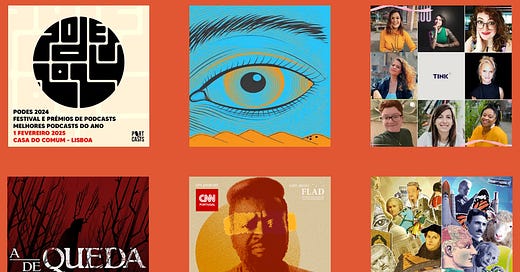


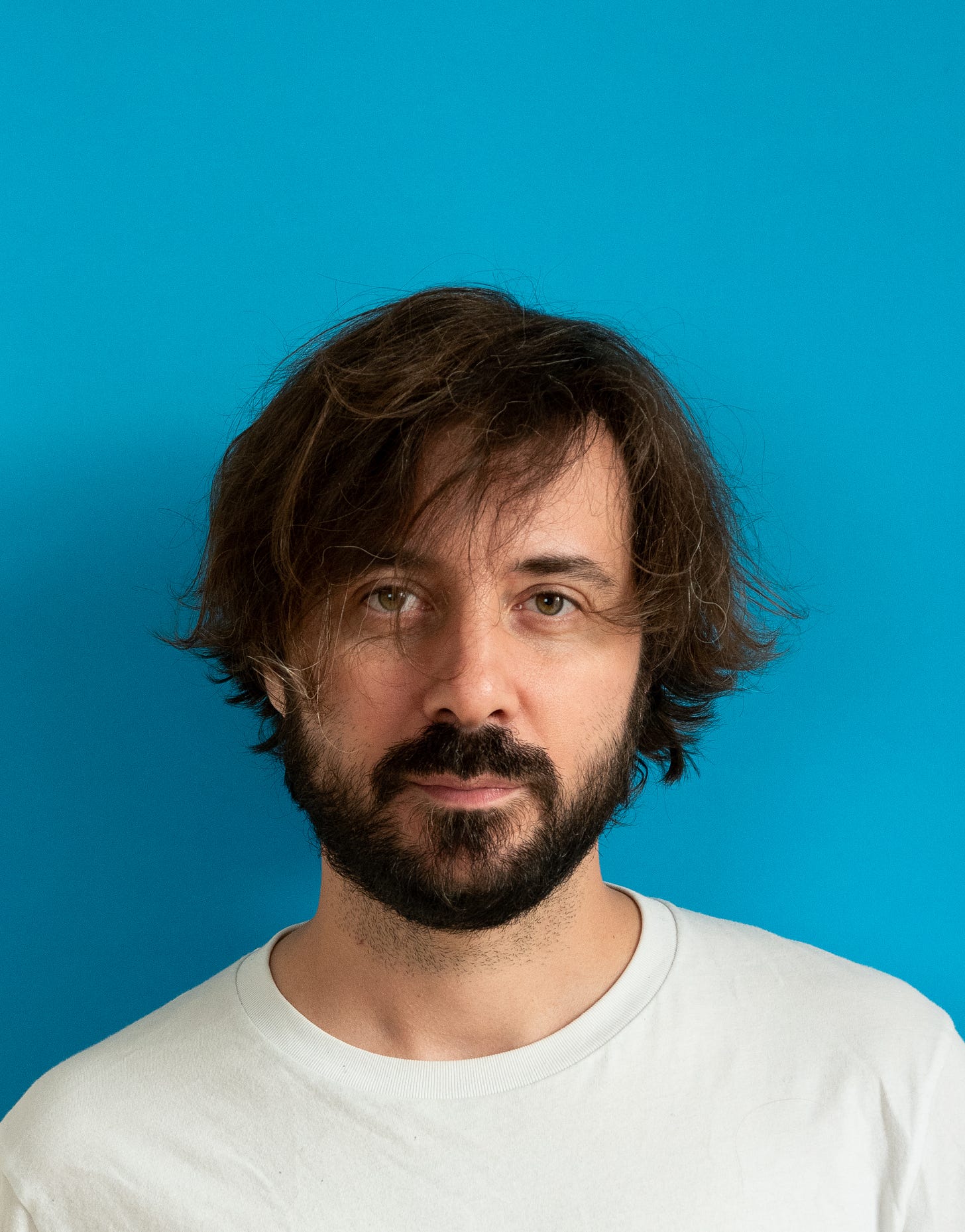

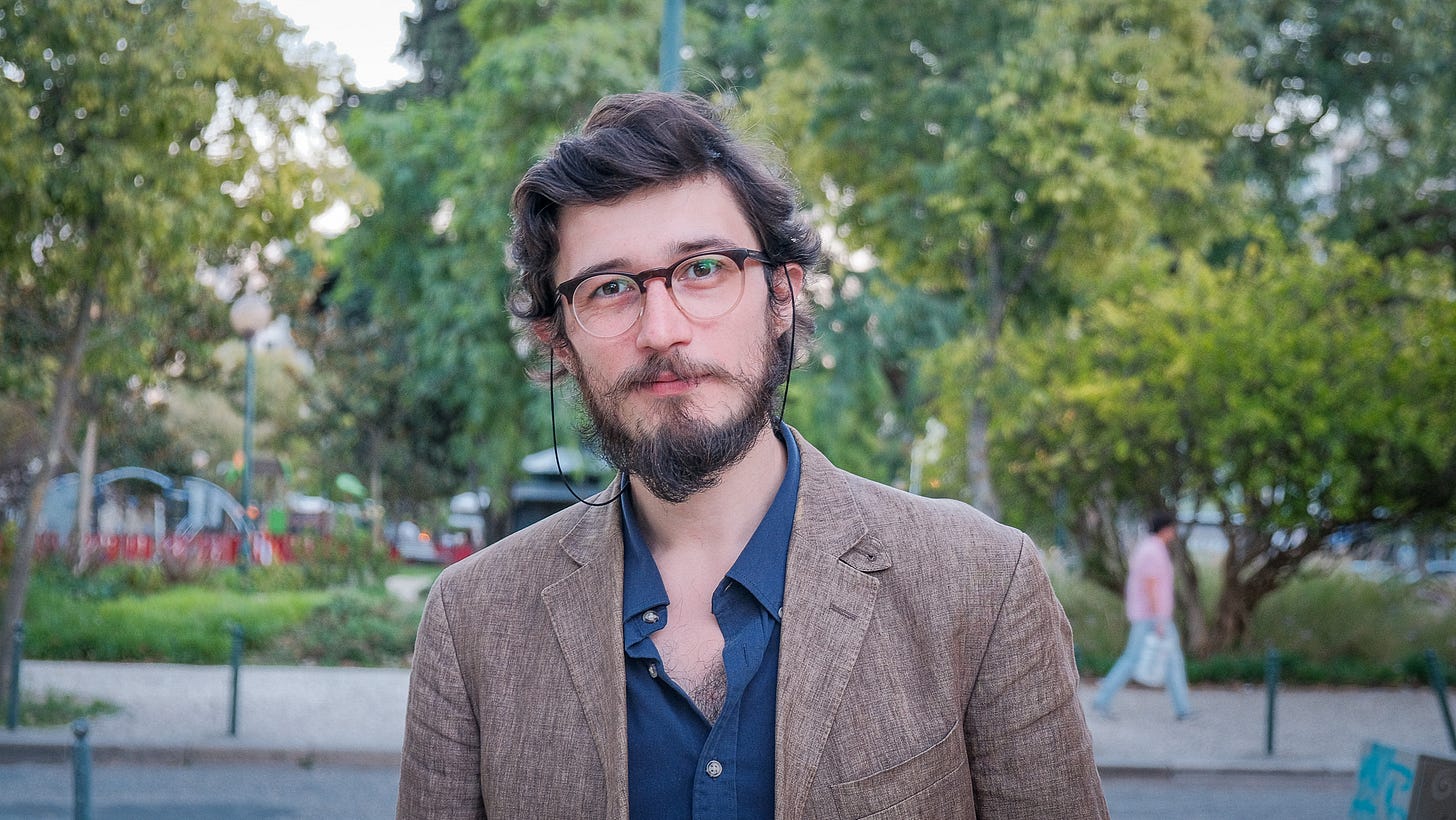

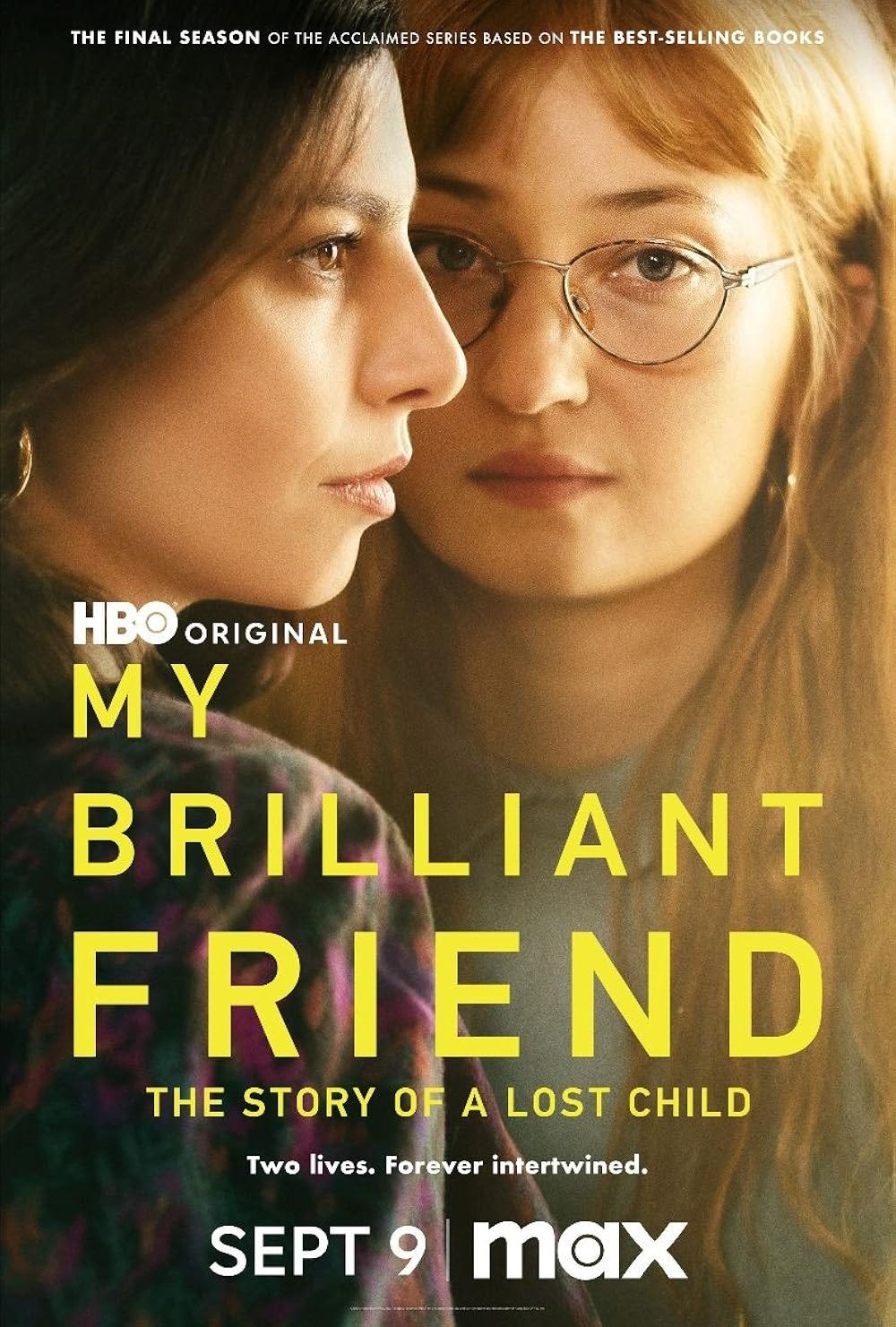
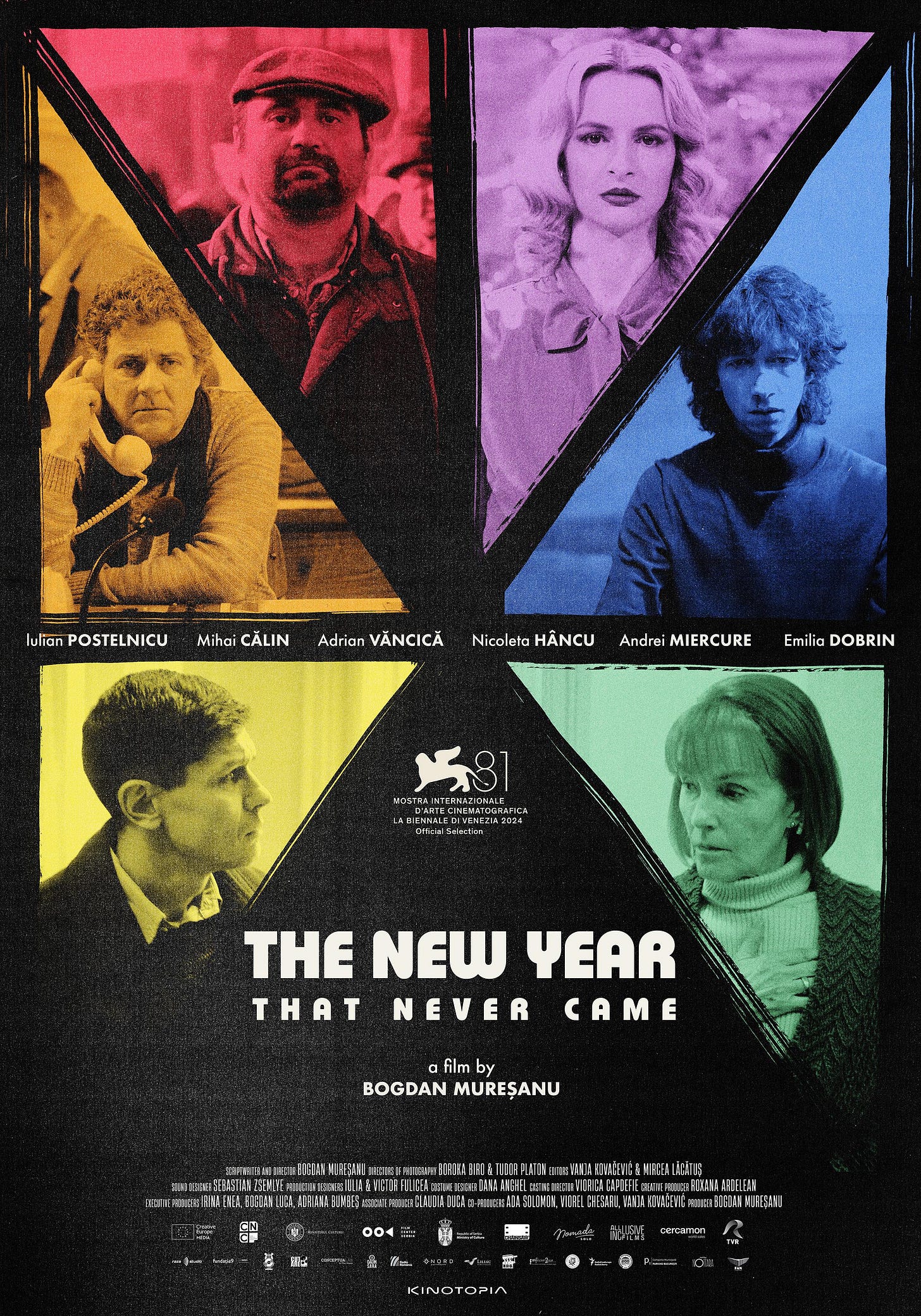
Andreea, I love this newsletter. I'm learning so much about European podcasting and having fun reading it. Great job. Let me know how I can help.
Having relocated to Spain last year and looking to build connections in the European podcast world, I'm super grateful you're doing this newsletter Andreea! Keep it up 🙏🙏🙏